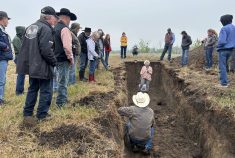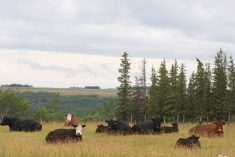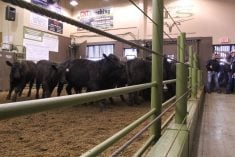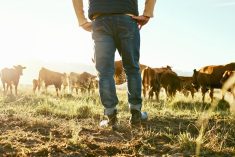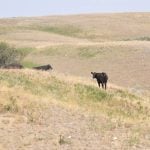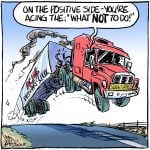Recently I was chatting with a few ranchers over supper after a beef cattle tour about potential long-term effects of this drought. We discussed how it might affect businesses linked to the beef sector (truckers, processors, etc.), and whether it would eat into the “infrastructure” that supports our industry and our rural communities.
We weren’t talking about roads and powerlines so much as the people who own and work in the businesses that power our economy, especially in rural areas. One rancher was worried that they couldn’t be replaced, as not everyone can or wants to live in a sparsely populated area. And as I think about it, I’m worried that he’s right. Rural communities were facing a labour crunch before the drought in many areas, in businesses ranging from smaller processors to vet practices. If the drought dents their business, that’s not good news for anyone. When you think of what the cow-calf sector faces to lose, then consider how it might affect the rest of the economy, it’s grim.
Read Also
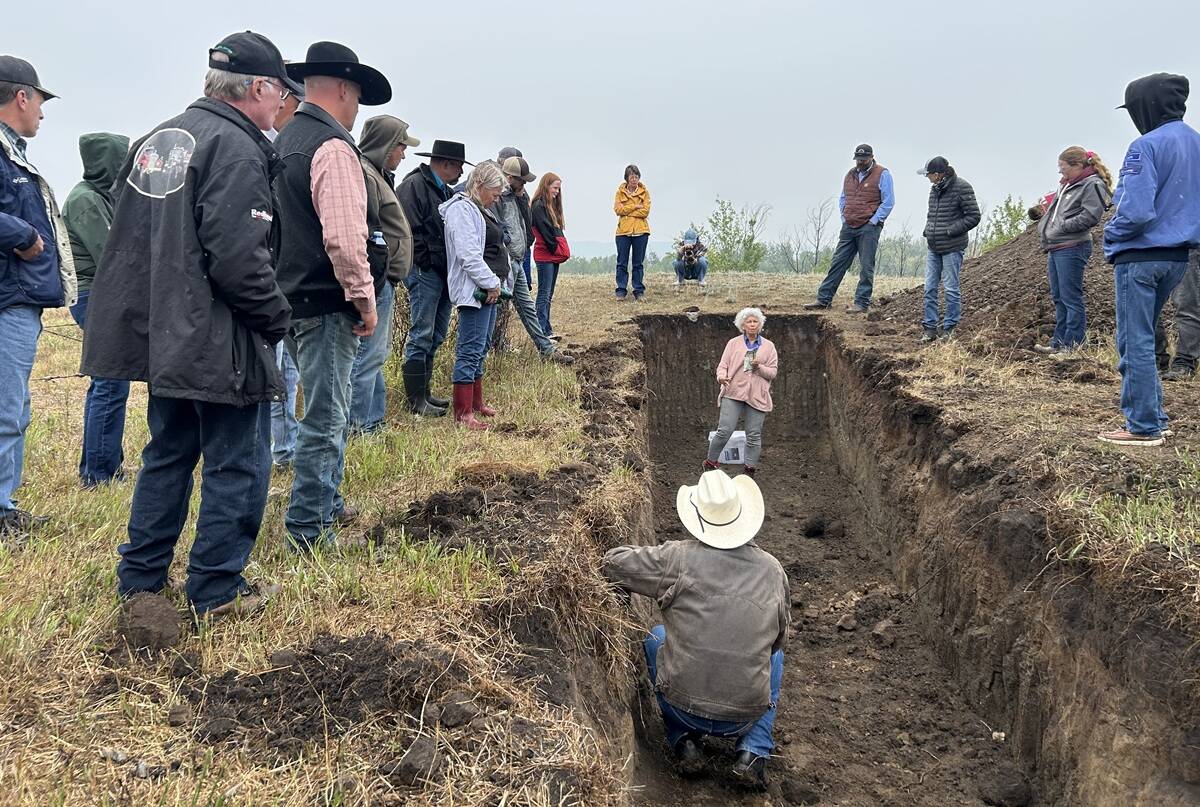
Improving soil health on the ranch
Yamily Zavala, PhD, talks soil health for farmers and ranchers at a grazing club field day at Paradise Hill, Saskatchewan.
During a crisis, the common wisdom is to focus on what you can control. Many readers have been doing just that by trying to find feed they can truck to cows, or shipping cows to the few places there’s feed, or putting cows out on shares, or selling cows at auctions. There’s been no shortage of tough decisions to make this year. We have a few articles and columns in our September issue that I hope will alert you to potential issues and help you make decisions, including John McKinnon’s Nutrition column, Ron Clarke’s case study and in the News Roundup section. Reynold Bergen outlines research that will help us with future drought in Research on the Record. And although calculating your gross margin might not be the first thing that comes to mind in this crisis, Steve Kenyon writes about how it can help you make long-term decisions for your operation. You’ll also find more articles on drought, both new and from years past, on our website, at canadiancattlemen.ca.
As ranching and farming families, it’s vital to make the best decisions possible with whatever resources are available, in good times and bad. That’s the reason we’ve brought a new columnist into Canadian Cattlemen. Kelly Sidoryk is a rancher, holistic management educator and succession planning consultant from the Lloydminster area who has been writing features for us for a few years. She is going to share her knowledge about the human side of running a farm business, for her first column, Depth of Field.
Years ago, when I was a reporter covering the farming side, I had a lightbulb moment when a speaker compared discovering clubroot in your field to going through the stages of grief (denial, anger, sadness, acceptance, etc.) Anyone who has had to sell a large portion of their herd, or their entire herd, may go through the same process. Grieving that loss is normal. Many people can get through it by talking to a good friend who knows how to listen or finding other ways to deal with grief that work for them.
But some may get overwhelmed by stress or sadness, or stuck in the grieving process. If you’re feeling that way, you need to know that others have also been caught in the mire and found a way through.
I know there is still stigma around seeking help for mental illness. I always think the people who cast judgement on those asking for help are revealing more about themselves than anyone else. I also think the stigma is easing, at least in most communities.
I’m going to share a little bit about a crisis I went through a few years ago, in the interest of removing a bit more of that stigma. A local man, who I did not know, started stalking me. I won’t get into details, other than to say that if you’re wondering whether I told him to go “kick rocks,” I did. That didn’t work, and neither did anything else I tried to make him leave me alone.
The stalking continued for years, and it was very distressing. Deep down, I was scared. I started having night terrors. I was angry at him, and the people in positions of authority who were unhelpful and, I felt, even callous towards me. I felt helpless, and that made me angrier. Other, normal stress became difficult to handle. I started to despair, afraid that he would never stop. Eventually, I felt emotionally flat and lacking all energy, like an Energizer Bunny with dead batteries. I understood what “bone-tired” means, and it went on for months. It was hard to get through the normal day-to-day.
Once that flat feeling set in, things started getting pretty dark in my head. But I had no desire or energy to talk about the stalking situation with a therapist.
As I struggled with that flat feeling over the summer, I realized I’d better do something before winter set in. I’ve never had seasonal affective disorder, but I knew the shorter days wouldn’t do me any favours. So one day I made an appointment with my family doctor and told her about the situation. She was instantly sympathetic, and she prescribed serotonin reuptake inhibitors (SRIs).
My (very basic) understanding is that SRIs increase the amount of serotonin in your brain, which makes you feel better. However they work, for me they were like magic. Soon that heavy, flat feeling lifted and my energy returned. After that, the right people got involved and convinced the guy to cut it out too. My life is fairly normal these days, and I love it. I weaned myself off the SRIs, but if I ever have another severe crisis that I think calls for medication, I won’t hesitate to ask for it.
If you’re struggling and think medication might help, talk to your doctor. If you think a counselor might help, Do More Ag has a list of mental health professionals with ag experience at domore.ag/resources. Take care out there.




